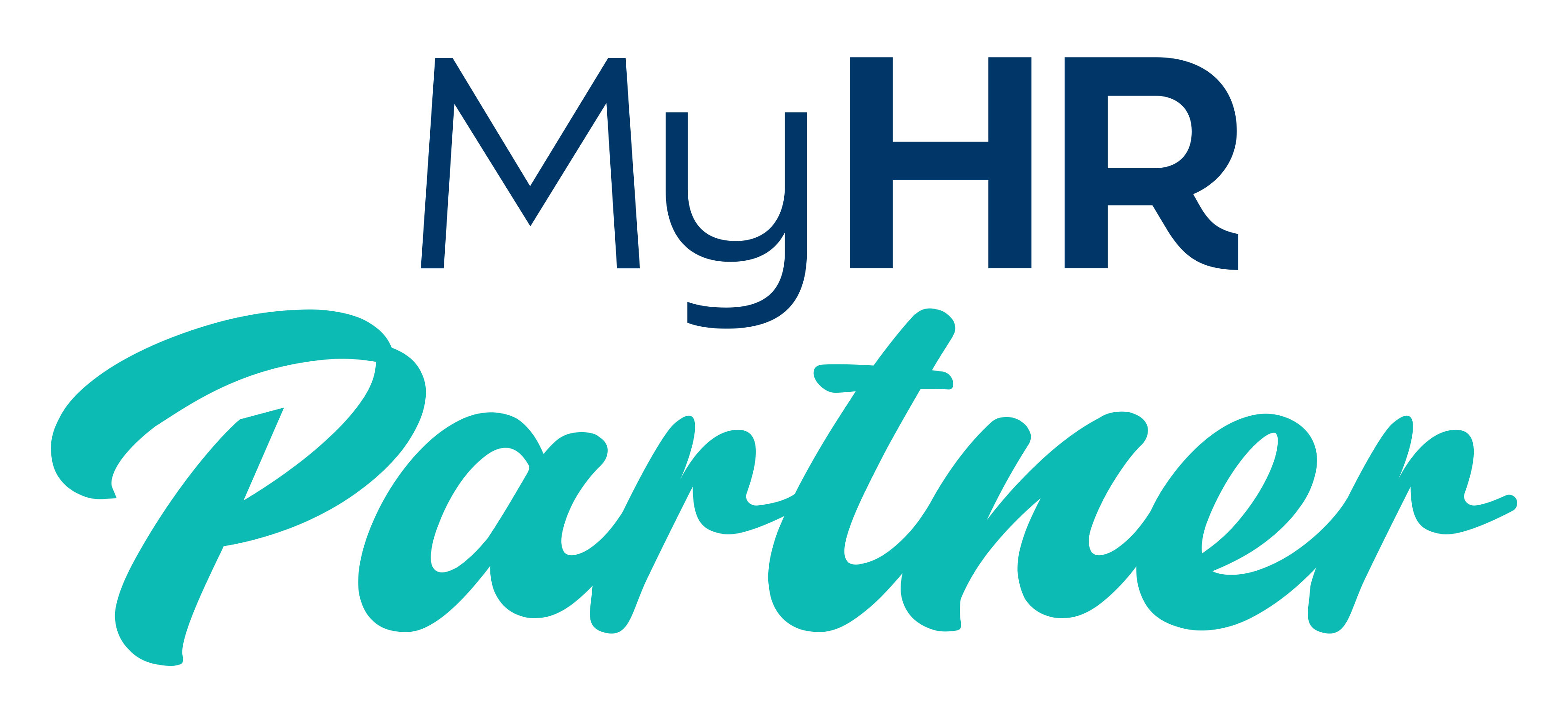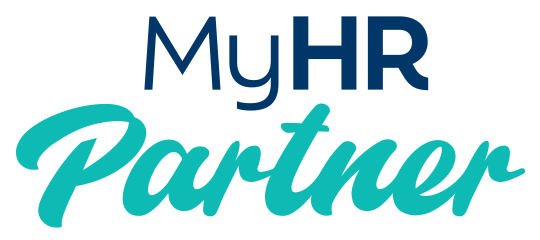Peace of Mind HR On-Demand
One of the most significant advantages of partnering with My HR Partner is the ability to speak to the same person every time, as opposed to a call centre or generic phone advisory service.
Your HR expert will be familiar with your business and policies, making the process more efficient and effective.
Our My HR Partner Peace of Mind On Demand HR Service gives you the confidence that expert HR advice is just a phone call away. Even if you don't use all of your allotted time per month, you’re paying for the reassurance that no HR issue will catch you off guard.
With ongoing access to professional HR guidance, you can focus on running your business while we handle potential HR challenges before they become problems.
Peace of Mind
HR On-Demand
One of the most significant advantages
of partnering with My HR Partner is the
ability to speak to the same person every time, as opposed to a call centre or generic phone advisory service. Your HR expert will be familiar with your business and policies, making the process more efficient and effective.

HR on Demand offers a comprehensive HR support package that includes:
An on-demand HR manager who will attend to your needs and concerns, providing tailored and informed advice and support by phone or email. You don’t need to book a call in advance as your calls and emails will be answered promptly.
Up to 4 hours of consultation time per month, ensuring you have enough support to manage your HR requirements without
incurring high costs.
An Employee Onboarding System that streamlines the onboarding process and ensures new employees have all the necessary information and resources to hit the ground running.
Access to a library of HR documents and templates, as you need them.
Access to My HR Partner HR Hub, a comprehensive resource library that provides access to videos, webinars, Q&A sessions,
templates, and checklists to help you address any HR problem.
Imagine receiving the HR support your business requires without the burden of a full-time HR manager. My HR Partner is precisely what you need. We provide dedicated HR expertise to address your concerns and streamline your policies, when you need it. Let us save you endless hours on Fair Work Australia compliance and documentation, so you can focus on what truly matters.
Our commitment: We’re here for you, just a call away, ready to expertly navigate you through any challenge. If your business isn't large enough for a full-time HR manager, My HR Partner offers the peace of mind solution you’ve been seeking. We are your HR experts for every unexpected situation.
Choosing Peace of Mind HR on Demand provides you with the assurance of having a dedicated HR partner who will attend to your HR needs and concerns. With a monthly package price of $600, (including GST) for businesses with up to 30 employees, you can enjoy the benefits of having a reliable HR partner without the high cost of a full-time HR manager.
Choosing Peace of Mind HR on Demand provides you with the assurance of having a dedicated HR partner who will attend to your HR needs and concerns. With a monthly package price of $800, (including GST) for businesses with up to 30 employees, you can enjoy the benefits of having a reliable HR partner without the high cost of a full-time HR manager.
Our Latest Blog Post

Kindness and Empathy in the Workplace: Why It’s Good for People—and the Bottom Line
Kindness and Empathy in the Workplace: Why It’s Good for People—and the Bottom Line
Kindness and empathy might sound like soft concepts. Nice-to-haves. The warm and fuzzy stuff reserved for motivational posters and the occasional feel-good email. But in today’s workplaces, these traits are fast becoming more than a "nice to have" but they are now business imperatives—and smart business owners and leaders are paying attention.
Let’s be clear: kindness isn’t weakness. Empathy isn’t a distraction. They’re power skills. Strategic advantages. And when embedded into your workplace culture, they don’t just make people feel better (although they certainly do)—they make your business perform better too.
First, a Quick Reality Check
The modern workplace is undergoing a quiet revolution. Employee expectations have shifted. People want more than a pay packet and maybe a few other perks. They want to feel valued, respected, and understood. They want to work somewhere that aligns with their values. Somewhere human.
And let’s face it: with mental health challenges on the rise, burnout still bubbling away post-pandemic, and ongoing change fatigue, businesses need to do more than manage performance—they need to support the humans behind the KPIs.
That’s where kindness and empathy come in. They’re not a fluffy bandaid. They’re a foundation.
So What Does Kindness Look Like at Work?
Spoiler alert: it’s not just about muffins at morning tea (although, let’s be honest, muffins help at any time! ).
Workplace kindness is practical. It’s listening without interrupting. It’s giving feedback with care. It’s checking in when someone’s off their game. It’s saying thank you—and meaning it. It’s making space for vulnerability, not punishing it.
In leadership, kindness is giving people clarity and consistency. It’s not sugarcoating the hard stuff but delivering it with respect. It’s having the tough conversations because you care—not in spite of it.
And in practice, kindness means setting up systems and policies that value people as people. Think flexible work, honest gratitude, genuine wellbeing initiatives, inclusive communication, and leaders who lead with heart.
Empathy: The Business Superpower
Empathy takes things a step further. It’s not just being nice—it’s understanding how others feel and responding accordingly. It’s what allows leaders to connect and support, and teams to thrive.
Companies that foster empathy don’t just have happier teams—they’re more innovative and more productive too. Why? Because empathy builds trust, and trust is rocket fuel for collaboration, creativity, and commitment.
Empathy also makes us better at handling conflict and problems (which are inevitable), and navigating change (which is constant). It helps us move from the attitude of “what’s wrong with them?” to “what’s going on for them?” That shift in perspective changes everything.
The ROI of a Kindness Culture
Let’s talk money. Because yes—kindness has an ROI.
Studies consistently show that psychologically safe, empathetic workplaces outperform those that rely on fear, silence, or status. Employees in caring cultures are:
More engaged: They’re emotionally invested in their work and more likely to go the extra mile.
More loyal: They stick around longer, saving you on recruitment and onboarding costs.
More collaborative: They share knowledge and support their teammates.
More resilient: They bounce back faster from setbacks.
Less burnt out: They have better mental health, which means fewer sick days and higher productivity.
A Gallup study found that teams with high employee engagement (a close cousin of empathy and kindness) are 21% more profitable. That’s not just warm and fuzzy—that’s warm and fuzzy with a bottom-line boost.
But What If Kindness Gets Taken Advantage Of?
Ah yes, the classic fear: “If we’re too kind, people will slack off.”
Let’s debunk that.
True kindness isn’t about letting people get away with not doing their job. It’s not avoiding accountability. In fact, some of the kindest things you can do as a leader involve setting clear expectations, giving honest feedback, and calling people in when they miss the mark. Letting things go on without addressing them can be much worse.
Kindness doesn’t remove boundaries—it reinforces them with respect. It creates safety, not softness. And people tend to rise to the level of the environment around them. Create a culture of care, and you’ll see performance lift—not fall.
Building a Culture of Empathy and Kindness
So how do you bring this to life in your business?
Here are a few practical starting points:
Be the example: Leaders set the tone.
Teach it: Don’t assume people know how to show empathy—teach them.
Create space for conversation: Real connection needs time and intention.
Celebrate it: Reward acts of kindness and empathy in real, visible ways.
Embed it into your systems: From hiring to performance management and performance reviews, make empathy and kindness part of all process.
And importantly, don’t let it be a one-off. Make it part of everything you do.
Final Thoughts: It’s Not Just About Feeling Good. It’s About Doing Good.
Kindness and empathy aren’t fluffy extras—they’re the glue that holds strong, modern workplaces together. They create environments where people don’t just survive—they thrive. And when your people thrive, your business does too.
In a world that’s increasingly automated, fast-paced, and disconnected, being the workplace that leads with heart isn’t just nice—it’s a competitive edge.
So go on—be kind. Empathise. Lead with humanity.
Your team will thank you. And so will your bottom line.
We provide HR advice and support. We have trusted partners to assist with any employment law issues
outside of our scope.
More info

Get HR Advice from our HR expert
Our Latest Blog Post

Kindness and Empathy in the Workplace: Why It’s Good for People—and the Bottom Line
Kindness and Empathy in the Workplace: Why It’s Good for People—and the Bottom Line
Kindness and empathy might sound like soft concepts. Nice-to-haves. The warm and fuzzy stuff reserved for motivational posters and the occasional feel-good email. But in today’s workplaces, these traits are fast becoming more than a "nice to have" but they are now business imperatives—and smart business owners and leaders are paying attention.
Let’s be clear: kindness isn’t weakness. Empathy isn’t a distraction. They’re power skills. Strategic advantages. And when embedded into your workplace culture, they don’t just make people feel better (although they certainly do)—they make your business perform better too.
First, a Quick Reality Check
The modern workplace is undergoing a quiet revolution. Employee expectations have shifted. People want more than a pay packet and maybe a few other perks. They want to feel valued, respected, and understood. They want to work somewhere that aligns with their values. Somewhere human.
And let’s face it: with mental health challenges on the rise, burnout still bubbling away post-pandemic, and ongoing change fatigue, businesses need to do more than manage performance—they need to support the humans behind the KPIs.
That’s where kindness and empathy come in. They’re not a fluffy bandaid. They’re a foundation.
So What Does Kindness Look Like at Work?
Spoiler alert: it’s not just about muffins at morning tea (although, let’s be honest, muffins help at any time! ).
Workplace kindness is practical. It’s listening without interrupting. It’s giving feedback with care. It’s checking in when someone’s off their game. It’s saying thank you—and meaning it. It’s making space for vulnerability, not punishing it.
In leadership, kindness is giving people clarity and consistency. It’s not sugarcoating the hard stuff but delivering it with respect. It’s having the tough conversations because you care—not in spite of it.
And in practice, kindness means setting up systems and policies that value people as people. Think flexible work, honest gratitude, genuine wellbeing initiatives, inclusive communication, and leaders who lead with heart.
Empathy: The Business Superpower
Empathy takes things a step further. It’s not just being nice—it’s understanding how others feel and responding accordingly. It’s what allows leaders to connect and support, and teams to thrive.
Companies that foster empathy don’t just have happier teams—they’re more innovative and more productive too. Why? Because empathy builds trust, and trust is rocket fuel for collaboration, creativity, and commitment.
Empathy also makes us better at handling conflict and problems (which are inevitable), and navigating change (which is constant). It helps us move from the attitude of “what’s wrong with them?” to “what’s going on for them?” That shift in perspective changes everything.
The ROI of a Kindness Culture
Let’s talk money. Because yes—kindness has an ROI.
Studies consistently show that psychologically safe, empathetic workplaces outperform those that rely on fear, silence, or status. Employees in caring cultures are:
More engaged: They’re emotionally invested in their work and more likely to go the extra mile.
More loyal: They stick around longer, saving you on recruitment and onboarding costs.
More collaborative: They share knowledge and support their teammates.
More resilient: They bounce back faster from setbacks.
Less burnt out: They have better mental health, which means fewer sick days and higher productivity.
A Gallup study found that teams with high employee engagement (a close cousin of empathy and kindness) are 21% more profitable. That’s not just warm and fuzzy—that’s warm and fuzzy with a bottom-line boost.
But What If Kindness Gets Taken Advantage Of?
Ah yes, the classic fear: “If we’re too kind, people will slack off.”
Let’s debunk that.
True kindness isn’t about letting people get away with not doing their job. It’s not avoiding accountability. In fact, some of the kindest things you can do as a leader involve setting clear expectations, giving honest feedback, and calling people in when they miss the mark. Letting things go on without addressing them can be much worse.
Kindness doesn’t remove boundaries—it reinforces them with respect. It creates safety, not softness. And people tend to rise to the level of the environment around them. Create a culture of care, and you’ll see performance lift—not fall.
Building a Culture of Empathy and Kindness
So how do you bring this to life in your business?
Here are a few practical starting points:
Be the example: Leaders set the tone.
Teach it: Don’t assume people know how to show empathy—teach them.
Create space for conversation: Real connection needs time and intention.
Celebrate it: Reward acts of kindness and empathy in real, visible ways.
Embed it into your systems: From hiring to performance management and performance reviews, make empathy and kindness part of all process.
And importantly, don’t let it be a one-off. Make it part of everything you do.
Final Thoughts: It’s Not Just About Feeling Good. It’s About Doing Good.
Kindness and empathy aren’t fluffy extras—they’re the glue that holds strong, modern workplaces together. They create environments where people don’t just survive—they thrive. And when your people thrive, your business does too.
In a world that’s increasingly automated, fast-paced, and disconnected, being the workplace that leads with heart isn’t just nice—it’s a competitive edge.
So go on—be kind. Empathise. Lead with humanity.
Your team will thank you. And so will your bottom line.
We provide HR advice and support.
We have trusted partners to assist with
any employment law issues outside
of our scope.
More info
PO Box 1079
Coolangatta QLD 4225
ABN 30 644 527 015
Get HR Advice from our HR expert








